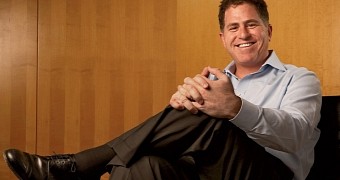Dell went through a serious change back in 2013, when its founder Michael Dell and private equity firm Silver Lake Management LLC bought all shares of the corporation and turned it from public to private.
The goal was to give the founder himself total control over the company so that he might steer it in the direction he wished without shareholder conflicting interests getting in the way.
He didn't have enough money to buy everybody out, so he asked private equity firm Silver Lake Management LLC to join up with him.
The situation was tight, though, for quite a few months in the earlier part of the year, when billionaire activist Carl Icahn tried to outbid him and almost pulled the company from under him.
He fiercely opposed the takeover for a long time, even wanted to drag things out in court, but eventually he was satisfied with forcing a rise in the buyout from Dell and Silver Lake.
Eventually, Michael Dell and Silver Lake won the bid and the change from public to private went as planned.
The change paid off very, very well
Michael Dell invested $4.2 billion / €3.40 billion in the takeover and Silver Lake added another $1.4 billion / €1.13 billion. The PC maker's debt and cash financed the balance. In the end, the buyout was of $24.9 billion / €20 billion.
Now, after just one year, 90% of these payouts have been recovered if you can believe it. Dell's equity value is of at least $10.8 billion / €8.72 billion. In layman’s terms, that means that Michael Dell's plan turned out to be a very, very, very good idea.
Here are some of the effects on the computer market and Dell's position in it. The share of the PC market has gone from 11.9% to 13.3%, and Dell has been increasing and strengthening its presence in the tablet and 2-in-1 device categories. Both Windows and Android operating systems are getting the attention they deserve.
Dell has benefited from the recovery of the PC market
Remember all that apocalyptic speculation about how the PC market was dead in the water, had one foot in the grave, or whatever other metaphor you can think of? Well, as we expected, it turned out to be overblown.
Now that the initial tablet craze has come and gone, laptops are retaking their position under the guise of 2-in-1 devices, and desktops have most stopped losing customers as well. Between this and a more focused approach to financing and marketing, Dell can only grow moving forward.

 14 DAY TRIAL //
14 DAY TRIAL //